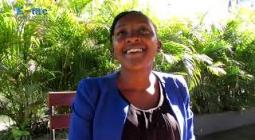5 Youth Activists Who Are Demanding Urgent Climate Action in Africa.
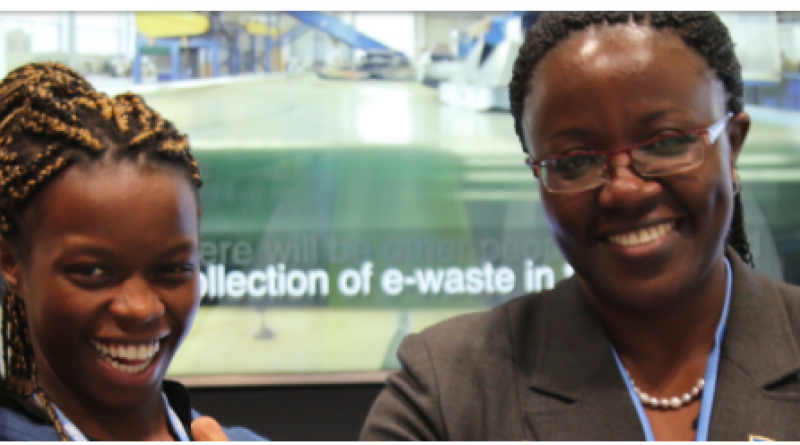
Africa is already feeling the disproportionate impact of climate change.Africa is already feeling the disproportionate impact of climate change.
Young people around the world are rising up against climate change and demanding action to help protect the planet.
In Africa, the effects of climate change are already being felt — making the voices and protests of climate activists all the more important.
Prof. Philip Alston, a UN human rights and extreme poverty investigator, told UN News last year: “[Climate change] could push more than 120 million more people into poverty by 2030 and will have the most severe impact in poor countries, regions, and the places poor people live and work.”
Alston said extreme temperatures will impact the world’s most vulnerable people hardest — sparking food insecurity, and driving lower incomes and worsening health, and forcing people to choose between migration and starvation.
He added: “Perversely, while people in poverty are responsible for just a fraction of global emissions, they will bear the brunt of climate change, and have the least capacity to protect themselves.”
This makes climate action that much more important — without it, Alston warned, the world is a catastrophe waiting to happen.
In Africa, the continent has already seen drastic changes in temperature and weather patterns as a result of global warming — impacting access to food, clean water, and many other issues addressed through the UN’s Global Goals for Sustainable Development (SDGs).
Meet five youth climate activists who are working to educate communities and promote climate action in Africa.
1. Wanjiru Wathuti, Kenya
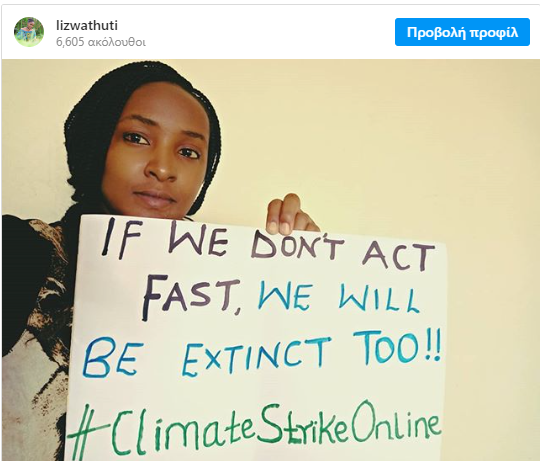
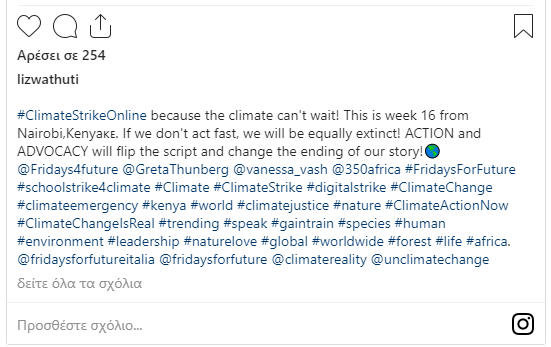
Wanjiru Wathuti founded the Green Generation Initiative in Kenya in 2016 as a way to get more young people interested in climate action and environmental health. Part of her organisation’s mission is “greening” schools in her country by planting trees. To date, the initiative has planted more than 30,000 trees.
She also started an environmental club in her high school.
“The main aim of the Green Generation Initiative is to address global environmental challenges that I have identified with since I was a child, including deforestation, pollution, and environmental injustices,” she told the Queen’s Commonwealth Trust. She added that she has always wanted to help inspire a generation of her peers to take action on climate change.
“I often used to think to myself, ‘why not nurture and raise more young people to be conscious of the environment so that their collective action will help to address global environmental challenges?’”
2. Oladosu Adenike, Nigeria
“Psychologically, it makes me feel insecure. The crisis is already here and it will have more and more impact in the coming years,” Oladosu Adenike told the Guardian in September last year.
In Nigeria, climate change is already leading to droughts and floods, desertification and increased conflict as animal herders fight over resources.
Adenike added: “I really don’t know whether we are going to win this race [against climate change]. I think about it every day.”
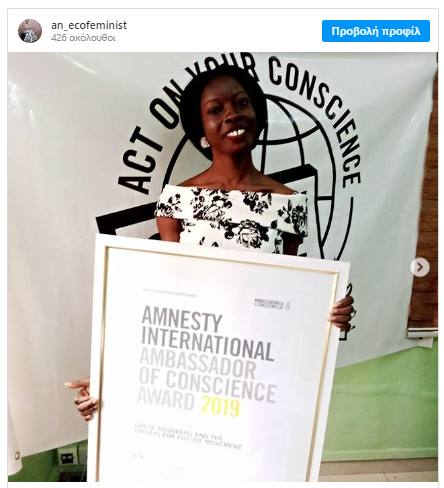
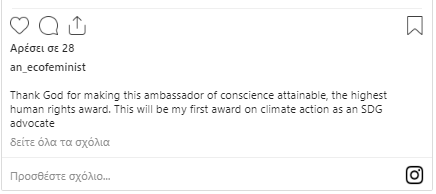
The 25-year-old is an ambassador for Fridays for Future, Earth Uprising, and African Youth Climate Hub; all climate action initiatives that she champions as part of her work to educate communities about climate change.
She says environmental issues caught her attention at university, when she was an agricultural economics student in an area that’s vulnerable to climate change.
“I saw farmers and herdsmen fighting because their land is becoming more arid. It took me an extra year to finish studying because of the fighting,” she told Greenpeace UK.
“I saw communities who had never faced flooding having their farm lands swept away, and I lost my puppies during a heatwave unlike anyone had experienced before," she continued.
Adenike runs community education forums where she visits schools and other public places to educate people about climate change, and to encourage them to plant trees. She also educates communities about the link between climate action and poverty and women’s rights.
She added: “The African continent is the most vulnerable to the climate crisis, and we can’t go on seeing our future being jeopardised.”
3. Yola Mgogwana, South Africa
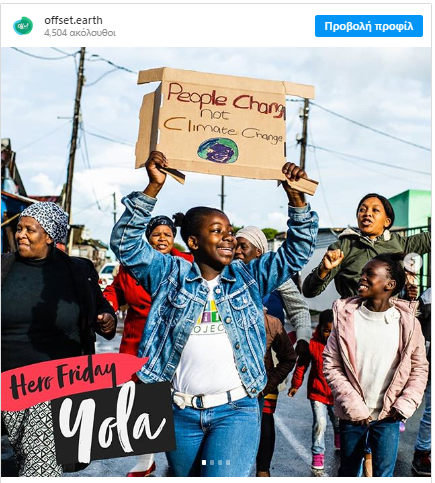
Yola Mgogwana is not letting being just 11 years old stop her from taking on one of the biggest challenges of her generation. Born and raised in Khayelitsha in Cape Town, she challenges her community to take better care of the environment, and to stop littering and using single-use plastics.
“People are poisoning the Earth by littering. So, I’m teaching them to take care of the Earth by not polluting the water and air and throwing rubbish on the streets,” she told Parent24.
Mgogwana was one of hundreds of young people in South Africa who joined the March 2019 global climate action protest called #FridaysforFuture, a movement inspired by Swedish activist Greta Thunberg’s call for school children to strike against the climate crisis.
"By not implementing policies that protect our environment, you are robbing us of an opportunity to end poverty, and stealing our future,” she told the TimesLive.
She added: “The crisis is now! People are dying! Nature is crying for help — hear us.”
Mgogwana is also a member of Earthchild Project Eco Warriors, which runs environmental clubs to help drive the organisation’s mission of inspiring a generation of ecological champions.
“We are sick of waiting for the adults. We are the future and we have the voice and power to change things,” Mgogwana said in a conversation with Earthchild Project Eco Warriors.
She said she is passionate about creating local impact in her township, including by giving talks in schools around the area. As part of her anti-plastic crusade, she gets teachers in the schools she visits to stop using plastics.
“Our mission is to integrate environmental policies in our schools’ code of conduct and also take action by implementing change and solutions to local issues,” she added.
4. Leah Namugerwa, Uganda
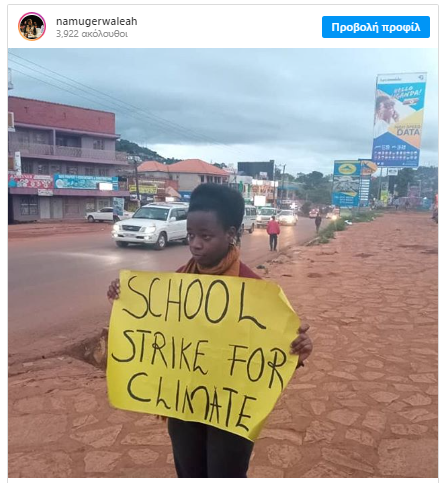
Like Mgogwana, Leah Namugerwa was inspired to act against climate change by Thunberg. Namugerwa, who is 15, told earthday.org that she realised the power of her own voice after reading about Thunberg.
“There are many environmental issues happening in my country but I barely see them in the media or reported by anyone,” Namugerwa said. She held her first solitary climate action protest in Kampala in February 2019.
She marked her 15th birthday by planting 200 trees and launching Birthday Trees, a project that provides saplings to people who want to celebrate their life by planting trees. To date, Namugerwa has planted more than 3,000 trees.
Uganda is one of the sub-Saharan African countries most vulnerable to climate change, according to a 2018 report by UK-based sustainability consultancy firm, LTS International.
The report found that Uganda’s tropical climate makes it more prone to floods and droughts. It added that human contribution to climate change, like deforestation, could increase temperatures at “unprecedented” rates.
Climate change is also leading to soil erosion and flood damage, which has started to impact agricultural and natural resources — and again, the poorest and most vulnerable will feel the impact the hardest.
Namugerwa is currently campaigning to get President Yoweri Museveni to ban plastic bags. There are health reasons too behind her action — plastic bags, she says in her online petition, carry bacteria while the waste disposed in them attracts mosquitoes.
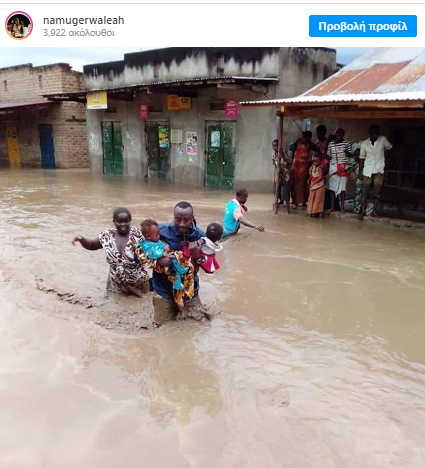
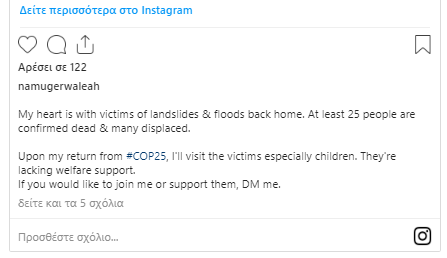
“Today, malaria is the leading cause of deaths in children and mothers in Uganda,” the petition states. “In the slums, plastic bags have been cited to be the main cause of cholera in Kampala city since people use them as mobile toilets.”
Namugerwa told earthday.org: “The silence on environmental injustice seems to be intentional. Most people do not care what they do to the environment. I noticed adults were not willing to offer leadership and I chose to volunteer myself.”
5. Nkosi Nyathi, Zimbabwe
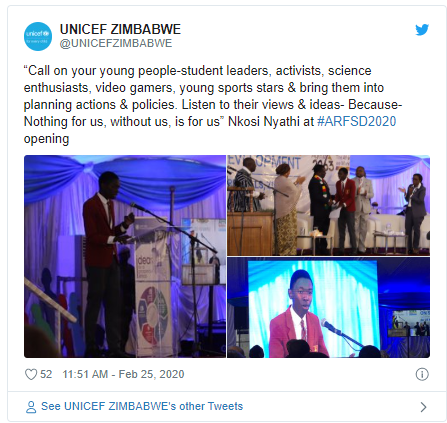
Nkosi Nyathi lives in Victoria Falls, the tourism town famous for its natural beauty. But Nyathi saw beyond its beauty. He saw dumping sites and eroded soil.
“The environment is our life. Issues to do with climate change are very close to what I advocate for,” Nyathi told the UN Children’s Fund (UNICEF).
The 17-year-old first took interest in environmental work when he was 11, after noticing the increasing damage to farming land.
“Subsistence farming is also important to my community and it was disheartening to see the arable land disappearing,” Nyathi said.
Besides community awareness, he also calls on governments to implement policies that protect the environment.
He told the Voice of America that he wants world leaders to work together to reduce greenhouse gases that cause global warming — and is urging world leaders to include the youth and communities that are already living with the effects of climate change in policy-making decisions.
Nyathi said: "It's now time to act. What will my environment be like [in 50 years] if I do not mitigate [against climate change] today?”
GLOBAL CITIZEN


